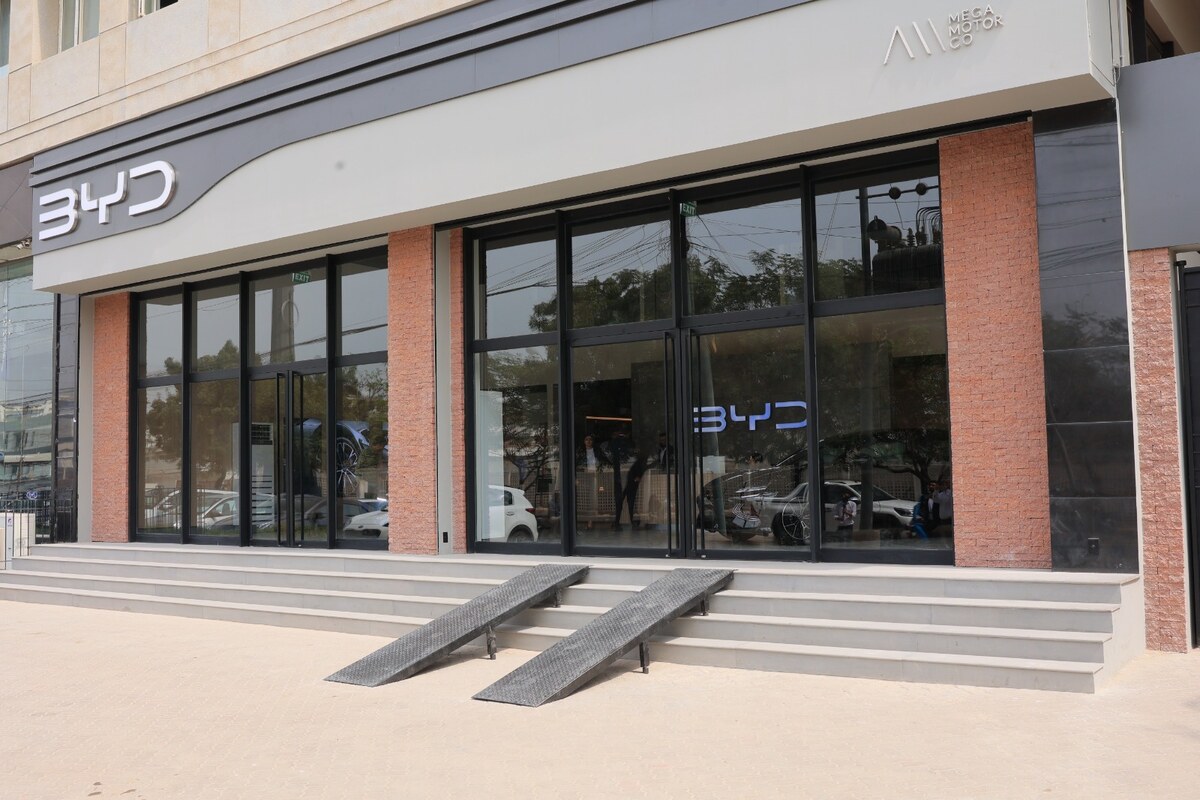KARACHI: China’s BYD, the world’s largest New Energy Vehicle (NEV) manufacturer, and Pakistan’s Mega Motor Company (MMC) started delivering vehicles in Karachi, Lahore and Islamabad on Friday, with plans to roll out 100 units within the first 48 hours, confirmed their official statement.
The milestone comes after BYD and MMC partnered last year to introduce electric vehicles (EVs) in Pakistan, aiming to accelerate the country’s transition toward sustainable mobility.
BYD, a global leader in battery-electric and plug-in hybrid vehicles, has expanded aggressively in Asia, Europe and Latin America. Mega Motor, a subsidiary of Pakistan’s Hub Power Company (HUBCO), is spearheading the local manufacturing, distribution and sales of BYD-branded vehicles.
“It is an honor to embark on this crucial development chapter in Pakistan,” said Lei Jian, BYD country head in Pakistan.
“BYD has long been dedicated to fulfilling people’s aspirations for a better life through technological innovation,” he continued. “We firmly believe that BYD’s new energy vehicles and technologies are destined to make even greater contributions to Pakistan’s green development journey.”

This handout photo, released by China’s BYD auto company on February 28, 2025, shows BYD Experience and Care Centers in Islamabad. (BYD Pakistan/Handout)
The companies have launched BYD Experience and Care Centers in Islamabad, Lahore and Karachi, offering customers access to their advanced automobiles.¬Ý
he initial rollout includes models such as SEAL and ATTO 3, with plans to establish 15 centers across Pakistan this year to expand accessibility.
“We are thrilled to begin vehicle deliveries across Pakistan,” said Danish Khaliq, VP Sales and Strategy at MMC. “This marks the beginning of an exciting journey for BYD and our customers, as we introduce world-class NEV technology to drive Pakistan toward a cleaner and more sustainable future.”
NEVs refer to alternative-fuel vehicles that rely on electric, hybrid, hydrogen, or other non-traditional power sources instead of conventional gasoline or diesel engines.


























